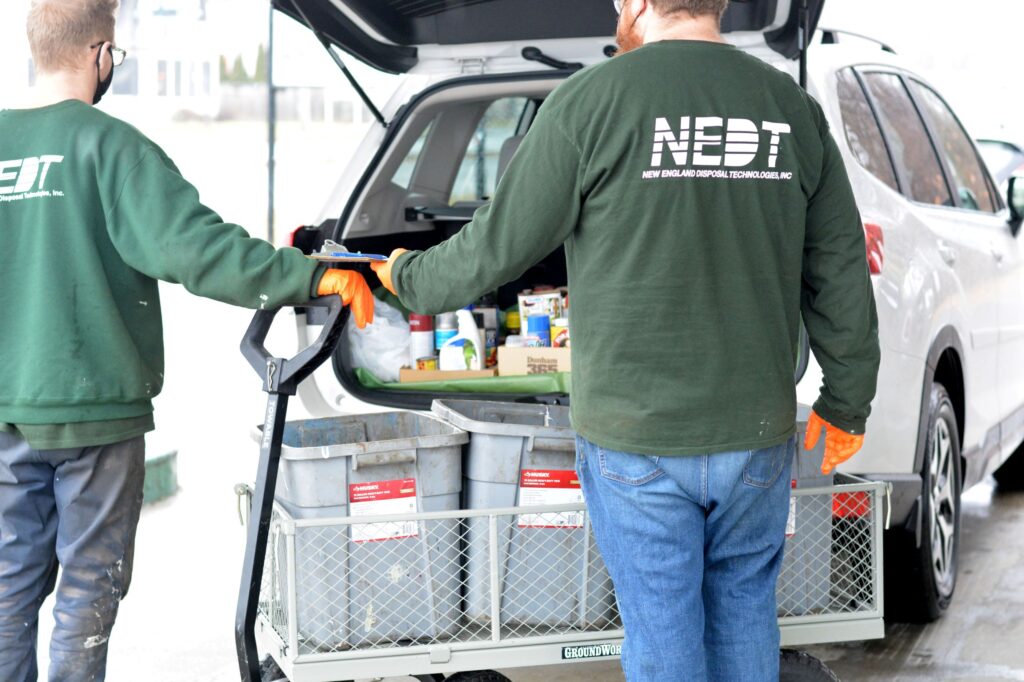When you encounter a product you can’t pour down the drain or throw in the garbage to dispose of it, chances are you’ve got a hazardous household product. Depending on where you live, you’ve got different options. Below are the most common ways homeowners dispose of hazardous products they accumulate, including helpful links for Massachusetts residents for disposing of household products.
City and County Household Disposal Events
Many cities and county municipalities host events for disposing of household hazardous waste. These usually occur once or twice a year with set drop-off points. These can generally be found on your city’s website under their trash and recycling programs. Many have a restricted list of what they’ll accept or have weight limits, so make sure to review it ahead of time.
For residents of Massachusetts, the Massachusetts Department of Environmental Protection (MassDEP) has put together this page with handy links for city and town websites: https://www.mass.gov/lists/massachusetts-city-town-recycling-links
Note that due to the current COVID-19 pandemic, many events have been canceled until further notice.
Charity and Non-Profit Donation Programs
If you’ve got products that you don’t want but are still usable, such as CRT monitors, cleaning supplies, or construction materials like paint, you might check in with your local charities and other non-profits. Each program will take only certain things, but they can often help with pickup. Make sure everything you’re looking to provide is still safe for use.
For Massachusetts’ residents, MassDEP has put together a list of non-profit donation and reuse programs here: https://www.mass.gov/lists/donation-reuse
Household Hazardous Waste Disposal Facilities
If you can’t wait for the next community events and have waste that can’t be donated, it’s time to turn to garbage and disposal facilities.
- The Local Dump: While some products can be disposed of at home in the garbage, most “hazardous” household waste are products that can’t be thrown away. While larger items can be taken directly to your city’s dump, if it’s hazardous, it will be turned away.
- Disposal Programs: While it varies from city to city, some waste management companies also provide hazardous disposal services. These are usually on certain days, have restrictions, and have additional costs.
- Disposal Businesses: Residential hazardous disposal businesses are rare, but it’s always worth looking into them for increased convenience, including hours, pick-up services, and expanded lists of what they accept.
NEDT’s Household Hazardous Products Collection Centers came out of the desire to provide alternatives to the often complex and rare opportunities for residents to get hazardous products out of their homes. Our tagline is “Because Household Hazardous Waste Shouldn’t Be Difficult,” and we stand behind it. Learn what we accept and our locations and times, and make sure to reach out if you have any questions.



Leave a Reply